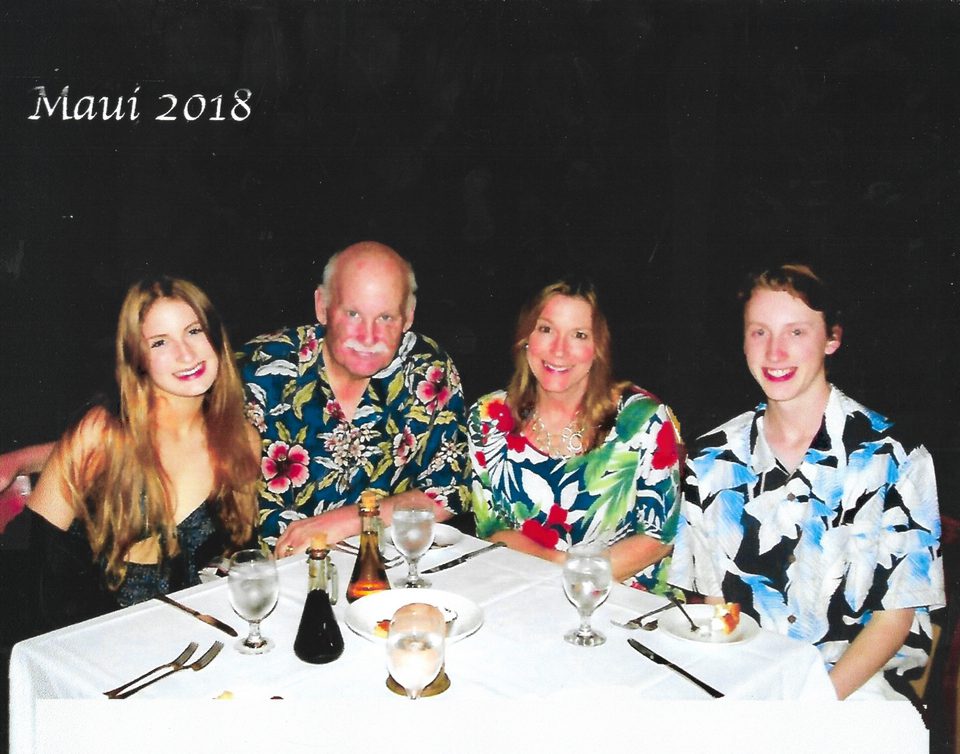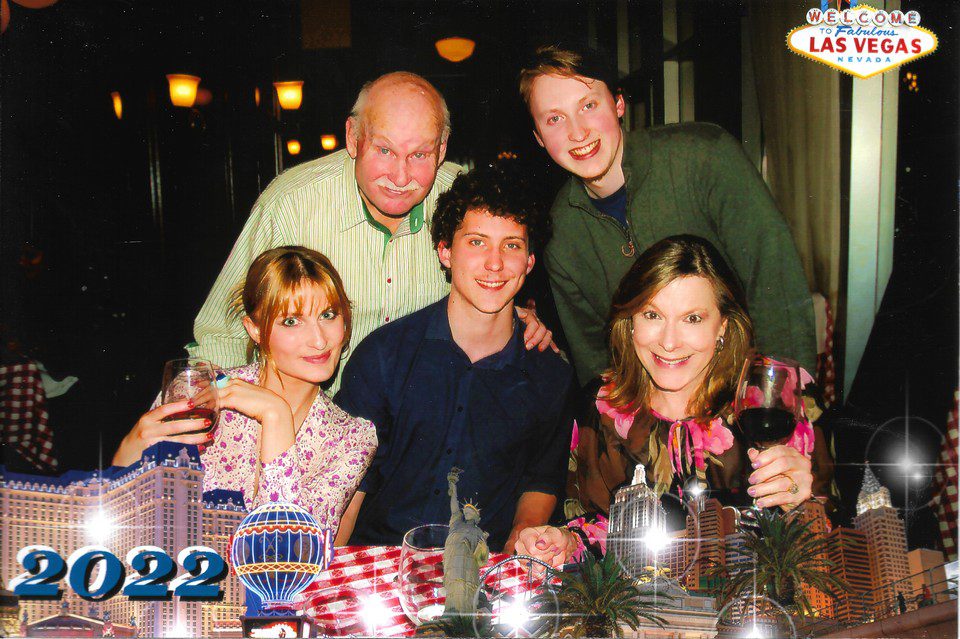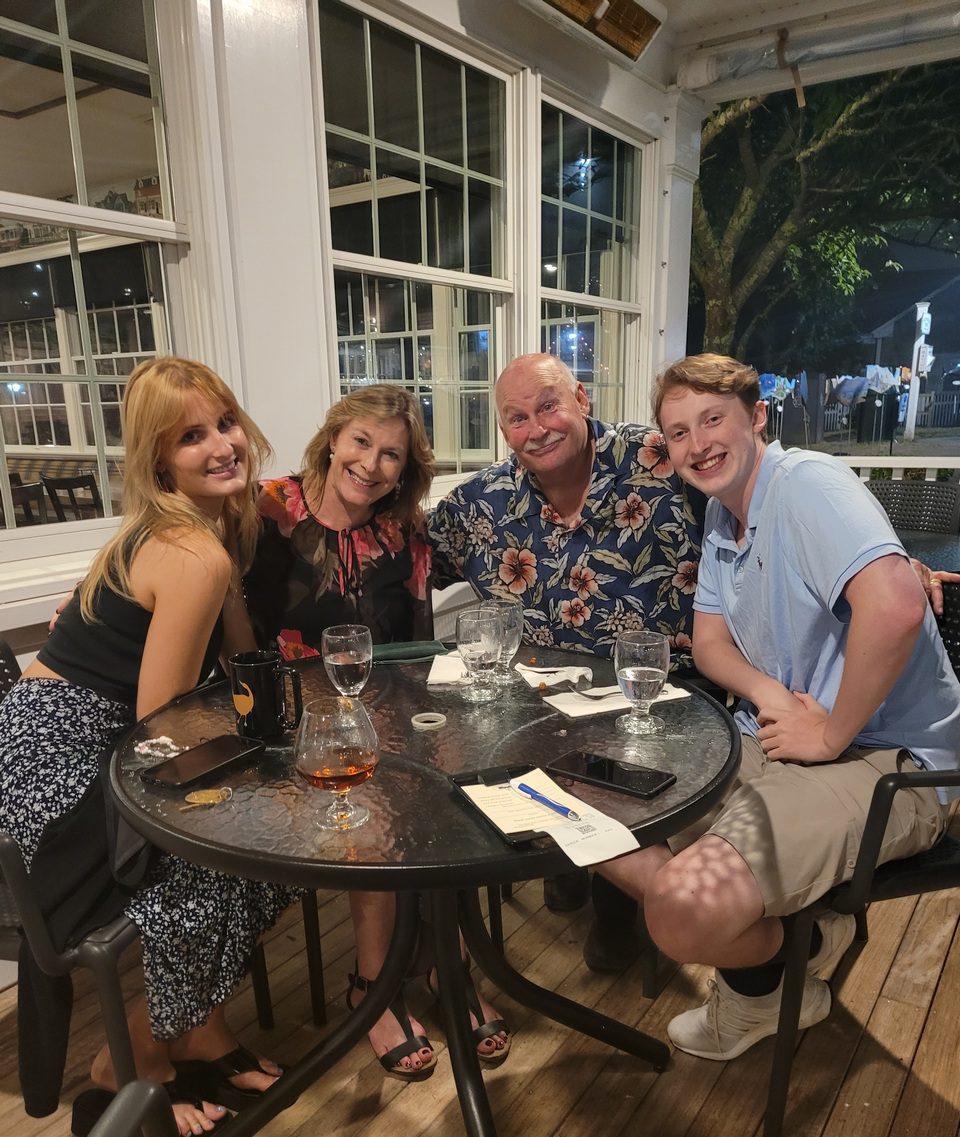 Interview with Tim Thorsteinson, Ex Broadcast CEO and current advisor at Grass Valley.
Interview with Tim Thorsteinson, Ex Broadcast CEO and current advisor at Grass Valley.
– When were you born?
I was born in Sacramento, California on December 6th, 1953.
– Who were your parents and what did they do for a living?
My father’s family migrated from Iceland to Winnipeg, Canada, while my mother’s family moved from Poland and Wales to Canada. They immigrated to California the year I was born. So when I ran my publicly traded company in Canada, I used to tell people that I was conceived in Canada, which is true. I was born six months after they immigrated to California. My dad worked in the insurance industry, handling real estate for insurance companies. He worked his way up from the mailroom to V.P as an immigrant from Canada to California. My mom was a housewife.
– Why did they migrate from Poland?
My grandfather left what he used to call “White Russia” during the Bolshevik revolution. He was born somewhere in Poland, and left during the revolution.
– Do you have any siblings?
Yes, there are four of us. I have an older brother and sister, as well as a younger sister.
– What can you tell me about your school days?
After high school, I attended Rice University and then the University of the Pacific in California. I received football scholarships for both.

– What was your position on the field?
I played as a quarterback throughout high school at Sacramento High School in California. In junior college, I switched to being a wide receiver, and then I realized I wasn’t good enough to play professionally after facing some exceptional players. That’s when I decided to shift my focus to academics.
– Did you enjoy your university years? What were your interests?
Yes, I did enjoy my university years, although being on a sports scholarship left me with limited free time. I had to graduate on time and dedicate a significant amount of time to football—about six hours a day, six days a week, for half the year. I appreciated the experience, but I knew professional football wasn’t in my future, and I needed to start making money to support my family. As soon as I had a job, I began supporting my parents financially.
– What came after university? Did you leave sports behind?
Yes, I quit sports and got a job in the semiconductor industry. I worked at a training center, running it due to my background. We trained people to enter the manufacturing sector. After a short time, I developed a productivity improvement program and spent the next three years implementing it globally. I traveled to various countries, including Malaysia, Singapore, Indonesia, Thailand, Japan, England, France, and Germany. It was a fantastic experience, and we achieved significant results by deploying the program worldwide.
– How long did you work in that field?
I spent three years implementing the program and working for that company. Afterward, I moved on to another company called Tektronix, as I realized my lack of an engineering degree could limit my growth in a technical company. I worked on the corporate side for several years before an opportunity arose in Hong Kong to run sales and expand the business in Asia. It was my first operational job, and we doubled the revenue within two years. I built a strong team in Hong Kong and established a design center in Kuala Lumpur, which still plays a vital role in Grass Valley’s R&D today.
– Sales seems like a straightforward business, right?
It certainly has its challenges, but the core idea is to stimulate sales by effectively managing product portfolios and customer relationships.
– I can imagine it requires strategic planning and teamwork.
Absolutely. Sales is all about understanding your product offerings, identifying customer needs, and finding ways to generate demand. It involves building relationships, providing solutions, and meeting customer expectations. It’s a dynamic and competitive field where you need to stay updated on market trends and constantly adapt your strategies.
– It sounds like you’ve had quite a diverse career path. What happened after your time in Hong Kong?
While I was in Hong Kong, my boss at the time asked me to return to the video networking division at Tektronix in the United States. The division was struggling, losing $10 million a quarter. They were considering their options and they wanted me to try and turn it around. So, in 1997, I moved back to the U.S. and took on the challenge.
– Did you manage to turn it around?
Yes, we were able to turn it around. We focused on developing and introducing new products that addressed the market’s needs. We launched a high-definition switcher and a new server, which helped us regain momentum and profitability. Eventually, the company decided to spin off the video division, and a private investor bought it. That’s when Grass Valley was born as a separate company.
– Ah, so that’s when you first started running Grass Valley. What was your experience like?
That’s correct. I became the CEO of Grass Valley when it was a separate company in the early 2000s. It was a great opportunity to lead and shape the future of a well-established brand in the broadcast industry. Over the course of my nine years at Grass Valley, we faced challenges, but we also achieved significant milestones. We developed innovative products, expanded our global presence, and created jobs. One of the proudest achievements was saving the production switcher product line, which was initially going to be discontinued.
– It’s impressive how you were able to make a positive impact on the business. What happened after your first stint at Grass Valley?
After my time at Grass Valley, the company was acquired by the French company Thomson. I stayed for a year as contractually required but felt that my career in a large corporation wasn’t the right fit for me. That’s when I received an offer to run a company called Leitch Technology in Toronto. I moved there and successfully turned the business around, doubling its revenue and increasing profitability. Eventually, Harris Corporation acquired the company.
– You’ve certainly had a knack for turning around struggling businesses. What came next?
After Leitch Technology was acquired by Harris, I continued working with them for several years. I had the opportunity to lead the transmission business and navigate the challenges of a transitioning market. However, I eventually reached a point where we felt it was time for a change. I left Harris and took some time off before taking on various consulting roles and board positions.
– It seems like you’ve had a diverse range of experiences throughout your career. Are there any particular achievements that stand out to you?
Absolutely. There are several achievements that I’m particularly proud of. Firstly, the successful turnaround of LeitchTechnology stands out as one of the best. We managed to double the company’s revenue, increase profitability, and elevate its stock price. Secondly, the creation of Snell Advanced Media, which created excitement and saved two legacy brands, was another significant achievement. Lastly, both of my tenures at Grass Valley were notable. We overcame challenges, introduced new products, and created positive energy within the company. I’m proud to have played a part in preserving and growing a renowned brand in the broadcast industry.
– It’s clear that you’ve made a substantial impact throughout your career. Apart from work, what other aspects of your life bring you fulfillment and joy?
Outside of work, my family is a constant source of fulfillment and joy. I’ve always prioritized spending time with my children, even during their upbringing. Now that they’re adults, I cherish the moments we can share together, whether it’s engaging in meaningful conversations or simply enjoying each other’s company.
I also find fulfillment in contributing to the success of others. Through my involvement in board positions and consulting roles, I have the opportunity to mentor and support individuals and businesses. It’s gratifying to see others grow and thrive, knowing that I played a part in their journey.
Additionally, I value personal growth and have been working on strengthening my faith and spirituality. My wife and son are devout, and their strong beliefs have influenced me to explore my own faith journey. It’s a continuous process, but it brings me a sense of peace and purpose.
– That’s wonderful to hear. Family and personal growth are truly important aspects of life. Now, let me ask, do you have any grandchildren?
Not yet. My wife and I had our children later in life, so we’re still waiting for the joy of becoming grandparents. It’s something we look forward to, as we envision the next generation of our family growing and bringing us even more fulfillment.

– It’s a special moment when grandchildren come into the picture. I wish you all the happiness when that time arrives. Lastly, throughout your career, who would you consider to be your mentors or sources of guidance?
I’ve been fortunate to have mentors who have influenced and guided me along my career path. One significant mentor was Andy Smith, a board member at Tektronix, who believed in my potential and encouraged me to pursue leadership roles. Another influential figure was Jerry Meyer, the CEO of Tektronix at the time, who provided me with opportunities to take on challenging assignments and trusted me to make a difference. Their support and guidance were instrumental in shaping my career.
I’ve also learned from various individuals throughout my journey, both within and outside the industry. Each interaction and experience has contributed to my growth and development as a leader.
– Having mentors can make a tremendous difference in one’s career. It’s great to hear about the impact they had on your journey. Thank you, Tim, for sharing your experiences and insights with us today. It’s been an enlightening conversation.


 Interview with Tim Thorsteinson, Ex Broadcast CEO and current advisor at Grass Valley.
Interview with Tim Thorsteinson, Ex Broadcast CEO and current advisor at Grass Valley.






